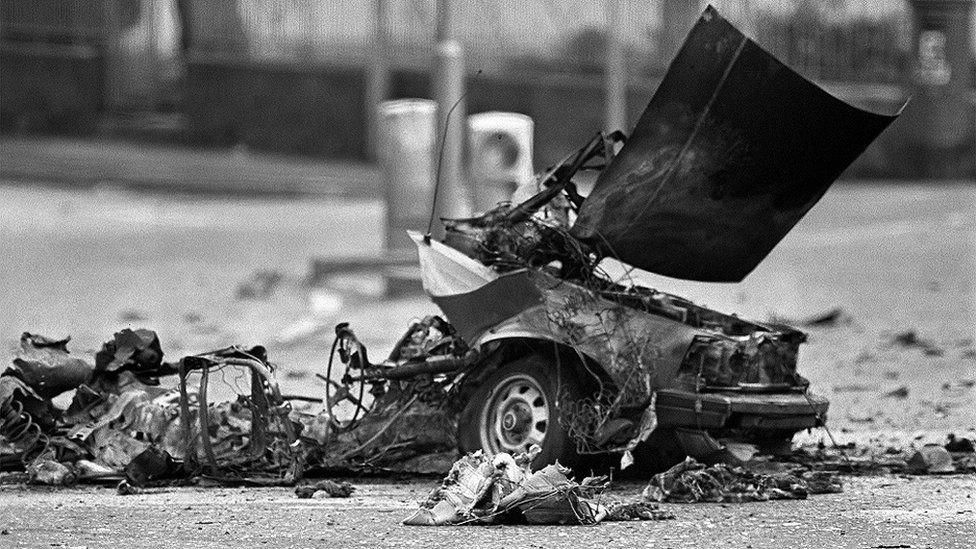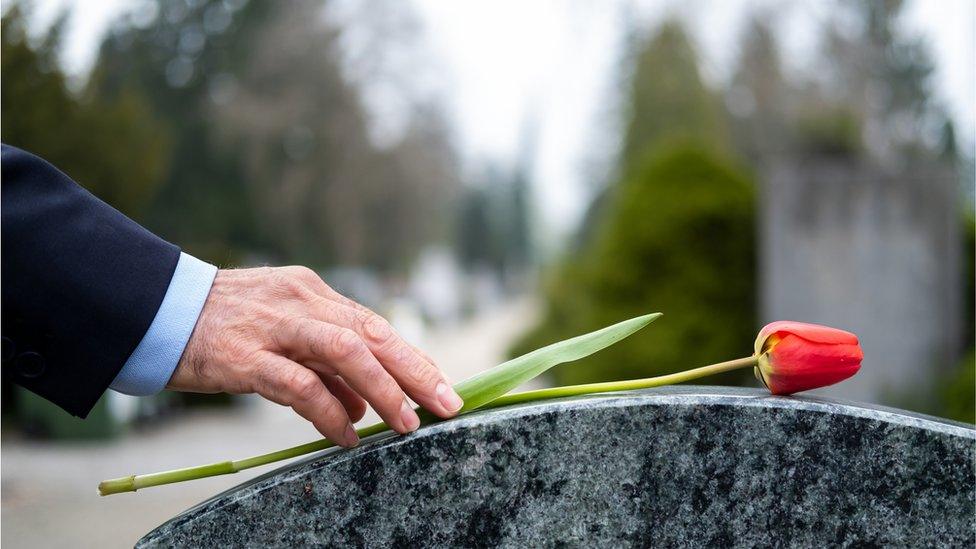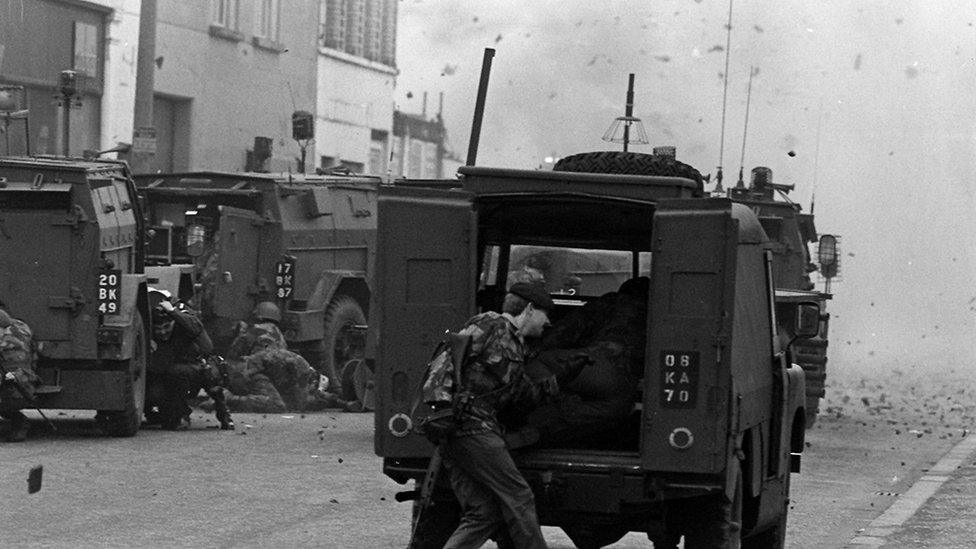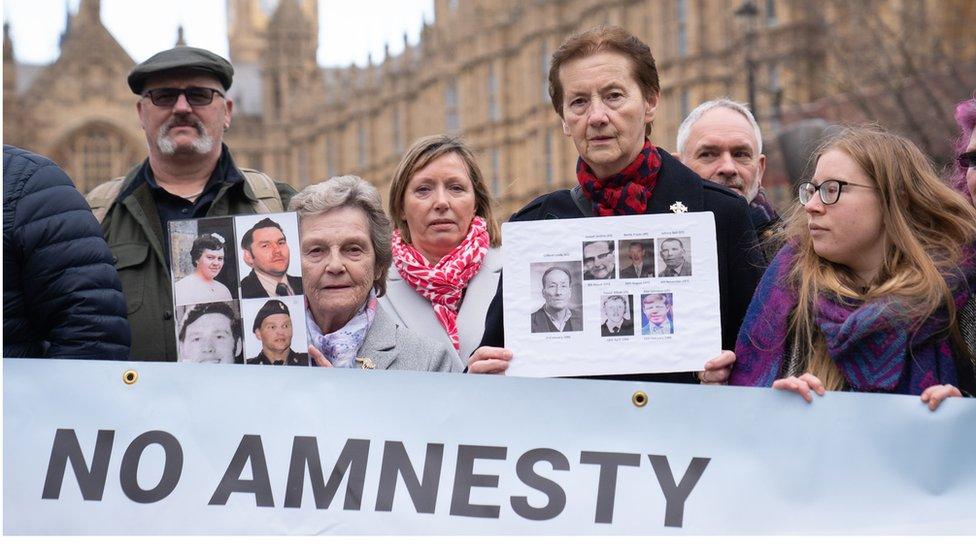Troubles: Some victims' families given just £43 for funerals, report finds
- Published

The Troubles was a period of conflict which lasted for 30 years and cost the lives of more than 3,500 people
The families of some victims of the Troubles received just £43 for their funerals, a report by Queen's University Belfast has found.
The report found that, in the early years of the Troubles, many victims' families were inadequately compensated for the death of their loved ones.
Women were routinely discriminated against and devalued, it added.
The research report was led by Prof Luke Moffett and Dr Kevin Hearty from the university's School of Law.
It was based on an archival review of compensation payments during the height of the Troubles, focusing on the period 1966-1976.
"That period was picked because new law came in in 1977 to improve the situation for bereaved widows," Prof Moffett told BBC Radio Ulster's Good Morning Ulster programme.
However he added that of the people who were killed, about a third were single.
"So it meant for their siblings or parents, they got very little," he added.
Prof Moffett added that widows and widowers of those who died in the security forces were often poorly compensated.
'Hierarchy of victims'
He said the families of women who were killed also suffered "because they were seen as housewives with no earnings" and were routinely given less than £1,500.
"We have cases of mothers of six or seven children being given £60 to £90 and someone else being given £19,000," he told the programme.
The roots of Northern Ireland’s Troubles lie deep in Irish history
He said that some people who received small sums of money also did not take it as it was seen as "blood money".
Prof Moffett said there was discrepancy even in families, citing one example of two brothers who were killed in the same incident - the sum for one was £100 and for the other it was £5,000.

He said such discrepancies "diminished the loss next of kin felt and reinforced a hierarchy of victims".
The report's authors said the scheme failed to provide redress for suffering, awarding only loss of income or funeral costs.
Based on the findings, the researchers have proposed a bereaved payment scheme, to complement the current one for seriously injured victims of the Troubles through the Victims Payment Board.
He said that due to the Legacy Bill - a controversial piece of legislation offering a conditional amnesty to those accused of killings during the Troubles - becoming law last week, victims' legal avenues to seek redress through the courts have now been "terminated".
The authors are calling for a bereavement payment scheme to "properly acknowledge and redress the suffering experienced by bereaved victims".
Prof Moffett added: "A lot of these people are quite old so we frame this as reparations to address the horrors these people have faced.
"Women, children, elderly, and co-habitees were failed by a system that only created a financial hierarchy of victims."
Victims' Commissioner Ian Jeffers said the research was welcome.
"We will be considering some of these recommendations they have made as we prepare our own advice to government in the months ahead," he said.
Related topics
- Published19 September 2023

- Published5 September 2023
